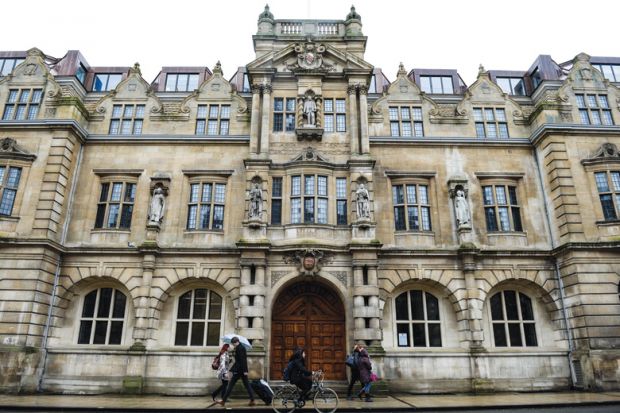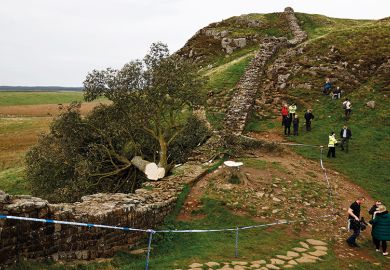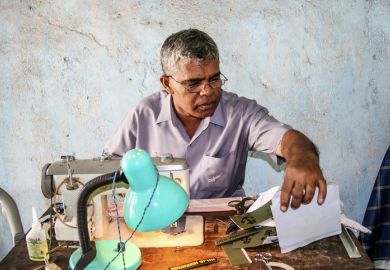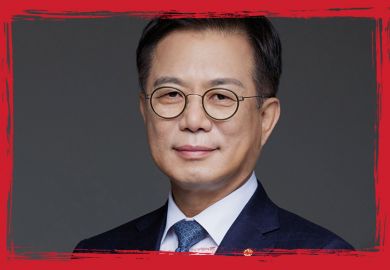The Rhodes Trust has announced a major expansion project, which will see the launch of an institute for a global network of fellows and new scholarships for students from Africa, Israel and the Middle East, and Southeast Asia.
The University of Oxford’s Rhodes House will open the Atlantic Institute as part of a £75 million partnership with the Atlantic Philanthropies, an international foundation established by entrepreneur Charles Feeney. The centre will act as a “knowledge-sharing hub” for the foundation’s Atlantic Fellows programmes, which provide grants for researchers, scholars and other professionals working to tackle global challenges.
The investment will also create a new Rhodes Fellowships award to support mid-career academics with breakthrough projects.
The trust said that the funding will enable the institute to provide additional support to fellows and alumni throughout their careers, including networking events and annual innovation prizes for them to develop and implement creative ideas. Rhodes House will expand to a 750-person capacity to house the institute, including a large presentation, arts and theatre space below ground.
The expansion of the Rhodes Trust comes after Oriel College, Oxford decided to keep its controversial statue of the Victorian imperialist Cecil Rhodes despite a campaign from students calling for its removal.
Charles Conn, warden of Rhodes House, denied that the new developments were designed to rebrand the trust in light of this campaign, but he said that the plans will ensure that the charity is “still relevant 200 years from now”.
“The expansion has been more than two years in the works,” he said, speaking at an event in London.
“The confrontation of historical legacy is important, and it is something our Rhodes scholars engage in. The Rhodes Trust is always forward-looking.”
He added that the Atlantic Institute was partly inspired by the Aspen Institute in the US, which has a hub for fellows and holds seminars and events for them to share ideas.
Three Atlantic Fellows programmes – at Trinity College Dublin and the University of California, San Francisco’s Global Brain Health Institute; China Medical Board’s Health Equity Initiative; and the London School of Economics’ International Inequalities Institute (III) – have also been announced, while the trust said that several more will join in the coming months. The complete network of Atlantic Fellows programmes and the new Atlantic Institute will represent an investment of more than £400 million.
The Rhodes Trust, which oversees the University of Oxford’s international scholarship programme, said that it will increase the total number of scholarships awarded each year from 83 to 95, including the addition of scholarships for students from Syria, Jordan, Lebanon, Palestine, Israel, China and West Africa.
It said that this increases the number of Rhodes Scholars studying at Oxford at any one time to about 250.
Mr Conn said that focusing the scholarship scheme on “the Commonwealth, Germany and the US made sense in 1902”, when the programme was started, but it is now important for the scholarships to be available in countries where “young, energetic leaders can make a difference”. He said that the programme has also launched outreach projects in every country it operates in to attract more applicants from disadvantaged backgrounds.
“That means expanding the scheme to difficult places,” he said. “We will consider bending the rules to accept some of these scholars in places like Syria, by not necessarily requiring an undergraduate degree or certain documents.”
He added: “Our aspiration is to identify and support innovative, energetic and ethical young leaders globally. The addition of these new scholars from regions that have an important international role to play in the 21st century marks a substantial step in that direction.
“We see the value of additional cultural diversity in our cohorts of scholars every day: they learn from each other in profound ways, leaving behind the narrow interests of individual nationalities.”
Register to continue
Why register?
- Registration is free and only takes a moment
- Once registered, you can read 3 articles a month
- Sign up for our newsletter
Subscribe
Or subscribe for unlimited access to:
- Unlimited access to news, views, insights & reviews
- Digital editions
- Digital access to THE’s university and college rankings analysis
Already registered or a current subscriber? Login






